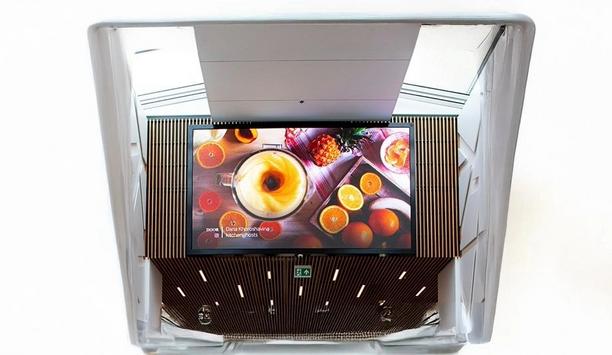Siemens has successfully installed security and building automation systems in Sabiha Gökçen International Airport in Turkey. Voted the "World's Best Airport"1 and the recipient of several other prestigious awards, Sabiha Gökçen serves 11 million passengers annually, and is considered to be the largest ‘earthquake-proof' building in the world.
It is the second international airport built to serve Istanbul, Turkey's largest city and 2010's "European Capital of Culture." It predominantly serves charter airlines and offers inland connections, low-price flights, short distances and is known for its keeping to the schedule. Its original annual capacity was 3.5 million passengers per year but in mid-2008, it was decided to extend the airport quite considerably in order to upgrade its international capability.
The new 185,000 square-metre structure is capable of withstanding an earthquake of magnitude 8.0 on the Richter scale and also remaining operational afterwards.
The safety and security system required the installation of the MM8000 danger management system, along with a Sinteso fire detection system, both from Siemens. The total system comprises 9,000 fire detectors combined with 400 carbon monoxide gas detectors, together with 200 video surveillance cameras and 28 digital recorders from Siemens to provide maximum security for all passengers and staff alike. All has been integrated into the danger management system, which clearly displays alarms, messages and statuses of all connected systems using a standardised format according to safety priorities. Its modular architecture makes it both cost-effective and scalable. Single as well as multiple-station applications, whether local or remote, are supported. In the event of evacuation, the integrated voice notification system using 4,600 loudspeakers, is brought into action.
Integrating building automation, safety and security
Another feature of the project was a Totally Integrated Power (TIP) approach from Siemens which offers power distribution from the medium-voltage supply right though to the socket outlet, providing maximum control and therefore optimised safety. In safety terms, the TIP, which includes low voltage Sivacon switchgear, 140 motor control centres, and universal metering cabinets, measures the stability of the energy network, helping to detect any irregularities in the energy distribution system before it causes fire or a power failure. In terms of energy efficiency, an increasingly critical factor in operating airport terminal buildings, the TIP also provides the means to monitor and control the airport's energy consumption.
 |
| Security, fire safety and building automation are integrated to form the "Total Building Solution" |
These integrated systems of security, fire safety and building automation form the heart of a typical Total Building Solution from Siemens. All the disciplines are effectively and flexibly coordinated to make the airport buildings safer, more comfortable, more efficient - and thereby more economical. The solution can be easily adapted to changes in usage and requirements or expanded at any time, therefore protecting the original investment in the longer term.
For more information, see www.siemens.com/bt/airports
Sabiha Gökçen International Airport, Istanbul / Turkey
Opened in 2001 and since extensively expanded, the facility is named after Sabiha Gökçen, a daughter of Mustafa Kemal Atatürk and primarily known for being the first Turkish aviatrix and the first female combat pilot in the world. Located on the shore of the Bosphorus, 35 kilometres southeast of central Istanbul, on the Asian side of the bi-continental city, the airport was built when Atatürk International Airport on the European side was unable to cope with the burgeoning passenger demand of the city for both domestic and international flights.
The complex includes a hotel adjacent to the terminal, restaurants, a 4,500 square-metre Duty-Free shopping area, a four-storey car park, VIP building and apron viewing, halls with business lounges and a conference centre. Last year, the airport handled over 11 million passengers. It should be able to deal with an annual capacity of 25 million passengers by 2023.
Siemens has been active for over 150 years in Turkey, where its Industry, Energy and Healthcare Sectors hold leading positions. The Sabiha Gökçen International Airport was the first step in the "Advanced Technology Industry Park" project of the Anatolian Coast of Istanbul, which is intended to develop the area's transportation, foreign trade, aviation and technology, acting as a catalyst in the future conversion of the region into a technology base.
1 Voted the ‘World's Best Airport' at the World Low Cost Airlines Congress in September 2010.












